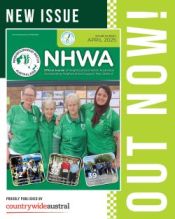For police, fire or ambulance
Call Triple Zero (000) immediately if the incident is life-threatening, needs urgent police attendance or a serious crime is happening now.
For police, fire or ambulance
Call Triple Zero (000) immediately if the incident is life-threatening, needs urgent police attendance or a serious crime is happening now.
Call 131 444 when police attendance is required and when it is not an emergency.
Crime Stoppers can take reports about crime information anonymously.
National Security Hotline can take reports about crime information anonymously.
Click on the relevant State, Territory or Organisation
Online sexual exploitation most commonly includes grooming, live streaming, consuming child sexual abuse material, and coercing and blackmailing children for sexual purposes.
When making a report, it is helpful to collect evidence before the content is removed to show police exactly what happened. This includes chat, photos or videos by taking screenshots or photos. Where possible record the webpage addresses (URLs), social media details (including account or profile usernames), dates/times and any other information that you think is relevant.
Once you have collected your evidence, block and report on the app, site or platform where the issue occurred.
Click on the relevant State, Territory or Organisation
If you encounter a description or depiction of child sexual abuse or other exploitative or offensive descriptions or depictions of a child (child sexual exploitation material) online or other illegal and harmful content, you can report it to the eSafety Commissioner.
eSafety works with the global INHOPE network to achieve rapid takedown of child sexual exploitation material (CSEM) hosted overseas, and cooperates closely with Australian law enforcement when CSEM is hosted in Australia.
Posting online, or threatening to post, another person’s intimate (private, nude or sexual) images without their consent is unlawful in Australia. It can be reported to the eSafety Commissioner or to local police.
eSafety has a range of powers to help with the removal of intimate images or videos and, in some cases, take action against the person who shared the images without consent.
Image-based abuse can be reported to either eSafety, or to State/Territory police, see links above in the State or Territory Crimes section.
The eSafety Commissioner operates a complaints scheme to tackle serious cyberbullying affecting an Australian child. eSafety can assist with the rapid removal of material targeting an Australian child when it is seriously threatening, seriously humiliating, seriously harassing, or seriously intimidating and the social media company has failed to remove that material within 48 hours of being notified about it through the social media’s own reporting channels.
ScamWatch is run by the Australian Competition and Consumer Commission (ACCC). It provides information to consumers and small businesses about how to recognise, avoid and report scams.
Click on the relevant State, Territory or Organisation
Report a cybercrime securely online to an appropriate Law Enforcement Agency.
Cybercrime is the use of a computer or online network to commit crimes such as fraud, online image abuse, identity theft or threats and intimidation. As cybercrime becomes more sophisticated, criminals are targeting individuals, businesses, education institutes and governments.
Click on the relevant State, Territory or Organisation
